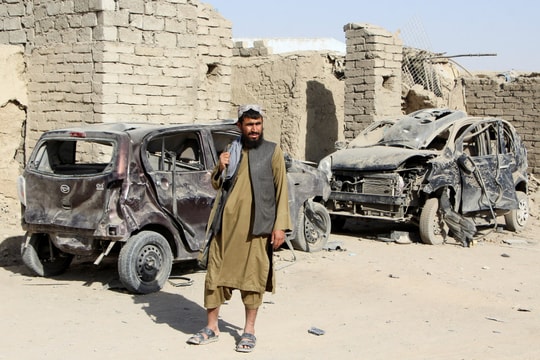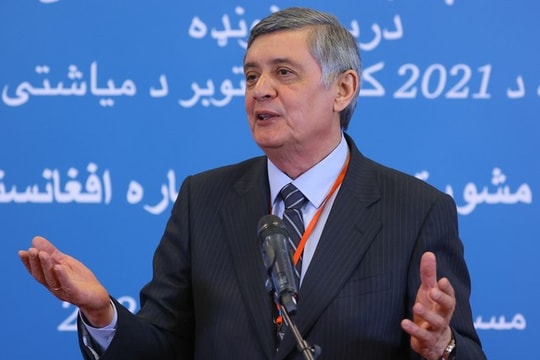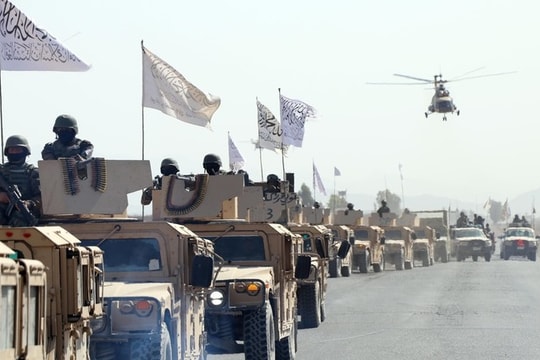America stuck in relationship with Taliban
US officials described it as a necessary, if uneasy, cooperation as the country races to evacuate troops from Afghanistan ahead of an August 31 deadline.
Two decades ago, President George W. Bush accused the Taliban of “complicitly abetting murder” in the September 11, 2001, terrorist attacks that led the United States into a two-decade war in Afghanistan.
Now, as President Biden ends the war Bush started, the United States finds itself locked in an uneasy partnership with the very same enemy, relying on the Taliban to protect American citizens and Afghan allies as it carries out an unprecedented evacuation from the South Asian country.
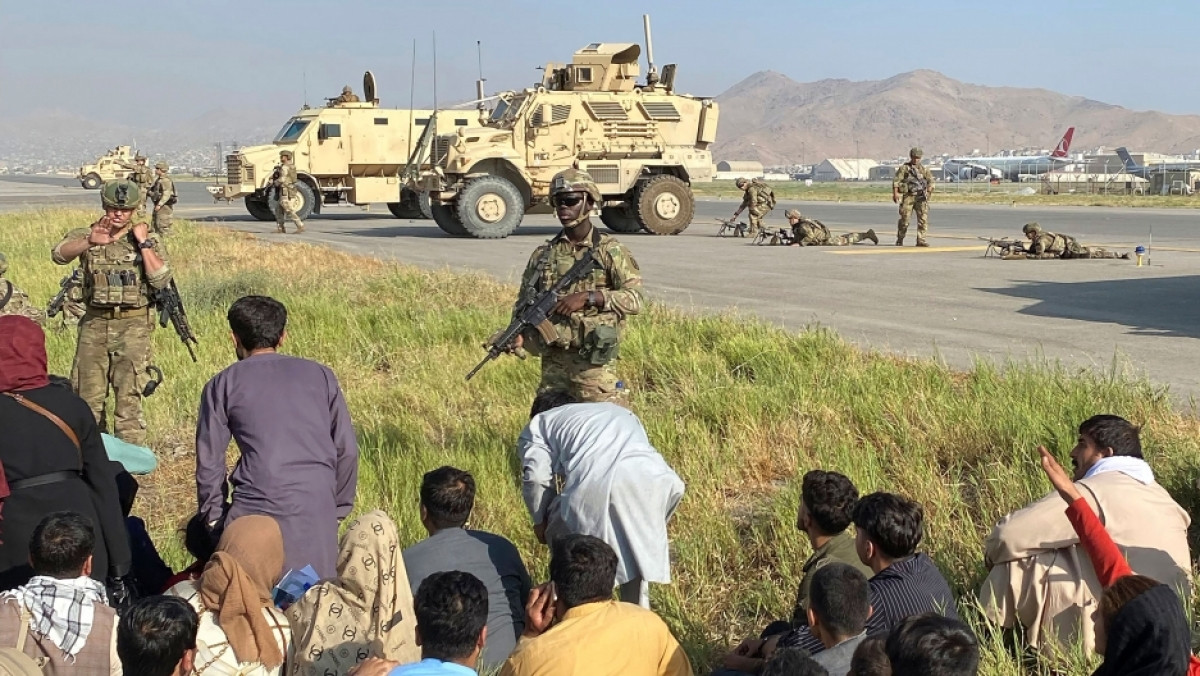 |
The inevitable relationship
US diplomats, intelligence and military officials are currently in cooperative discussions with the Taliban, as the group serves as the US first line of defense at Kabul Airport, checking passengers’ documents and even weapons. It is an inevitable battlefield relationship.
President Biden has faced criticism for his handling of the withdrawal of US troops from Afghanistan, even from many Democrats. Even Republicans who supported President Donald Trump during the negotiations with the Taliban have criticized Biden for relying on them.
But after the Taliban took over Kabul on August 15, a situation became inevitable, according to Mr. Biden and top U.S. generals. Over the past 10 days, any settlement with the Taliban has been necessary, even though U.S. officials have felt uneasy.
In fact, working sessions between the US government and the Taliban – the enemy in the war that claimed the lives of more than 2,400 US soldiers – are not unprecedented.
In 2010, President Barack Obama authorized negotiations with the Taliban to free Bowe Bergdahl, an American soldier captured by the group a year earlier.
Under the Trump administration, the United States has sought to conduct direct peace talks with the Taliban in hopes of ending the conflict. Zalmay Khalilzad, an Afghan-American diplomat who served as US ambassador to Afghanistan, Iraq and the United Nations, was appointed to lead the nearly two-year-long negotiations in the Qatari capital Doha.
The talks were close to success when Mr. Trump attempted to invite Taliban representatives to Camp David in 2019. This intention was quickly canceled after a Taliban suicide bombing in Kabul killed 12 people, including an American soldier.
The Trump administration reached a deal with the Taliban in 2020 that would end the US presence in Afghanistan on May 1, a deadline Biden pushed back to August 31.
Necessary pragmatism
The Biden administration initially had no intention of working with the Taliban in the current evacuation, according to US officials familiar with the planning.
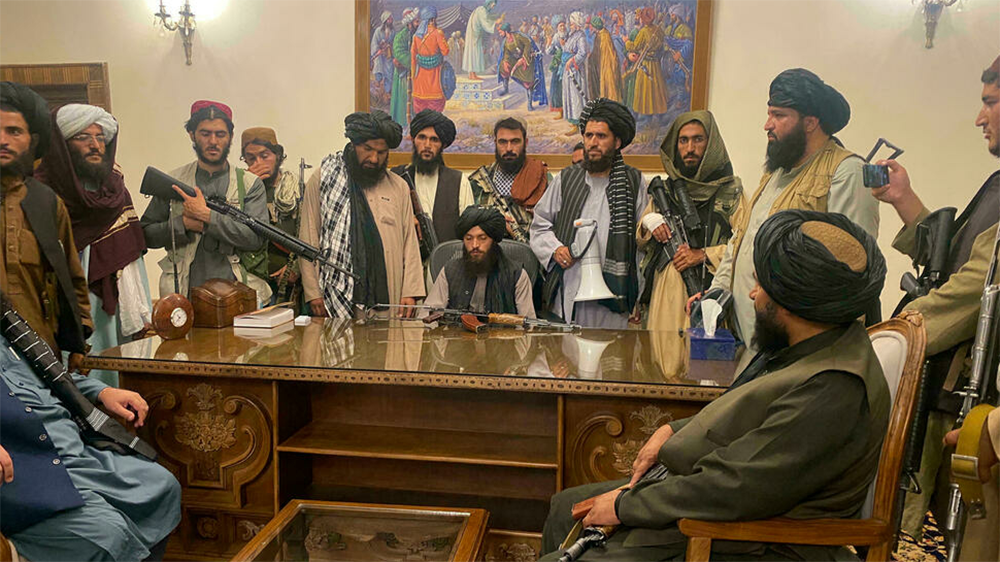 |
| Taliban soldiers at the Afghan presidential palace in Kabul. Photo: AP - Zabi Karimi |
As the first of nearly 6,000 troops Mr. Biden is deploying began arriving in Kabul, military commanders believed they would work with Afghan government security forces to help get Americans and others to safety. But by August 15, as the Taliban overran Kabul, President Ashraf Ghani had fled the country and his government’s security forces were no longer functioning.
That day, General Kenneth F. McKenzie, head of US Central Command, met with Taliban leaders, asking the group not to interfere with the evacuation.
At the meeting, the Taliban told General McKenzie that security in Kabul was deteriorating and they had to act quickly to secure the city. According to a US official, the Taliban also offered to set up a communication system to discuss security issues.
Over the past two weeks, there have been regular exchanges between Taliban members in charge of security in Kabul and US military commanders.
According to US officials, this was a tactical exchange, reflecting a necessary pragmatic relationship and is not expected to continue after the evacuation ends on August 31.
Thomas Joscelyn, an analyst on the war in Afghanistan for Long War Magazine, also believes that such tactical discussions are probably necessary.
“There are certain tactical discussions that need to be done, because they are directly facing each other and there needs to be de-escalation moves,” said Joscelyn.
After the August 26 bombing, General McKenzie said the US military had asked the Taliban to adjust security barriers and close specific routes that the US had identified as sources of threat.
“We are doing everything we can to prepare for possible attacks. That includes reaching out to the Taliban. We will continue to work with them as long as they continue to do what they are doing,” General McKenzie said.
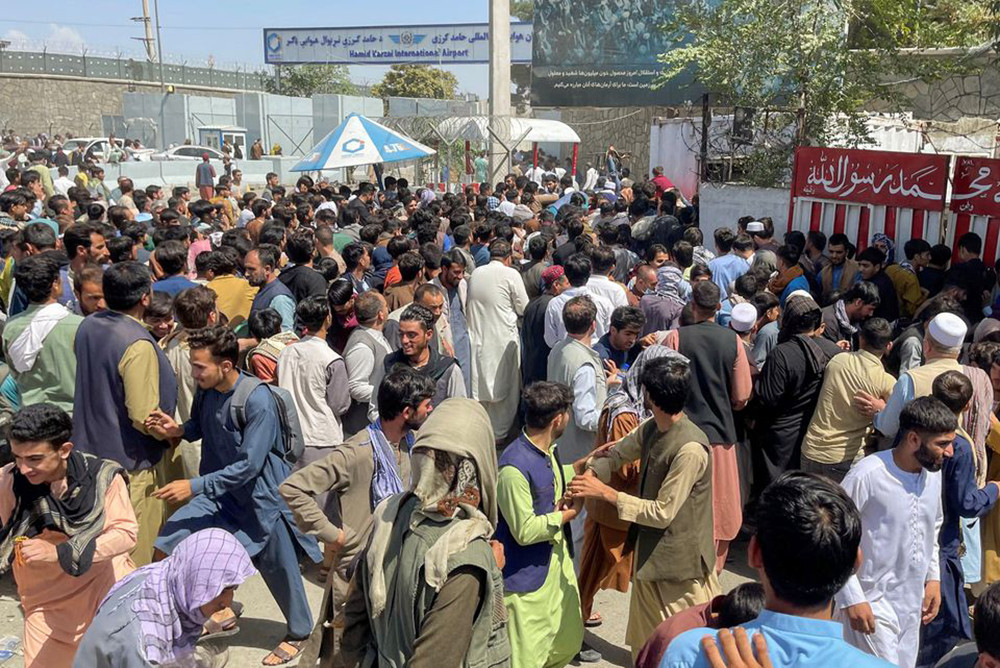 |
| Afghans jostle to enter Hamid Karzai airport in Kabul on August 16, as the Taliban take over the Afghan capital. Photo: Reuters |
On the other hand, on the evening of August 26, US forces destroyed the Eagle base on the outskirts of Kabul, which was used by the CIA to train Afghan counter-terrorism forces, to prevent the possibility of the base falling into the hands of the Taliban. This is a typical example showing the complicated relationship between the US and the Taliban.
Possible cooperation against terrorism?
For now, US officials still believe they can rely on the Taliban to prevent attacks from the Islamic State (IS) terrorist organization or other terrorist groups. The Taliban and IS have repeatedly confronted each other in Afghanistan.
Still, US officials say the Taliban's mass release of prisoners before the Kabul Airport bombing that killed dozens of people is a clear sign that the force will act in untrustworthy ways, leading to developments that could endanger the US.
According to the New York Times, once the evacuation is complete, much of the regular contact with the Taliban may be carried out by the CIA. The visit to Kabul on August 23 by CIA Director William J. Burns could be the beginning of work in the coming years.
However, the extent to which the CIA negotiates and cooperates with the Taliban may depend on the group’s behavior. If the Taliban allows the US to conduct strikes against IS and al Qaeda targets and provide information on terrorists in Afghanistan, the US government is more likely to cooperate with them.
On the other hand, the level of cooperation with the Taliban may also depend on whether President Biden receives support from Congress or not./.

